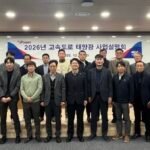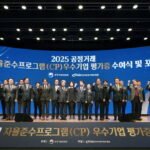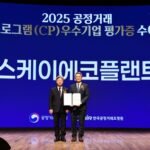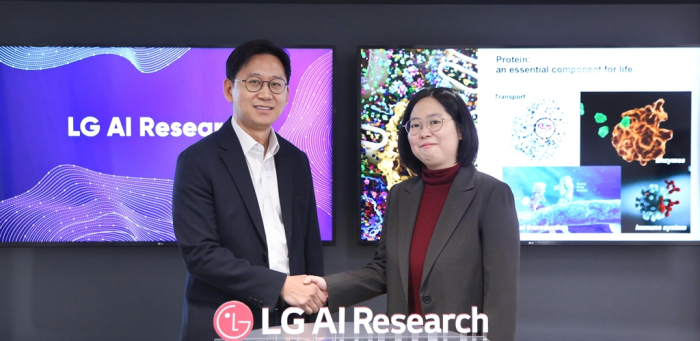
LG AI Research Institute, the artificial intelligence think-tank of LG Group, South Korea’s fourth-biggest conglomerate, on Thursday signed a joint research agreement with Assistant Professor Minkyung Baek of the School of Biological Sciences, Seoul Nation University, to develop a next-generation AI for protein structure predictions.
In collaboration with Prof. Baek’s SNU research team, LG AI Research Institute aims to develop a breakthrough AI model for predicting multistate protein structures by the end of this year.
LG said the AI model is designed to contribute not only to the discovery of novel therapeutics but also to uncovering the mysteries of biological phenomena.
“AI is a powerful tool in protein structure prediction, but it has limitations in fully understanding the underlying principles,” said Prof. Baek.
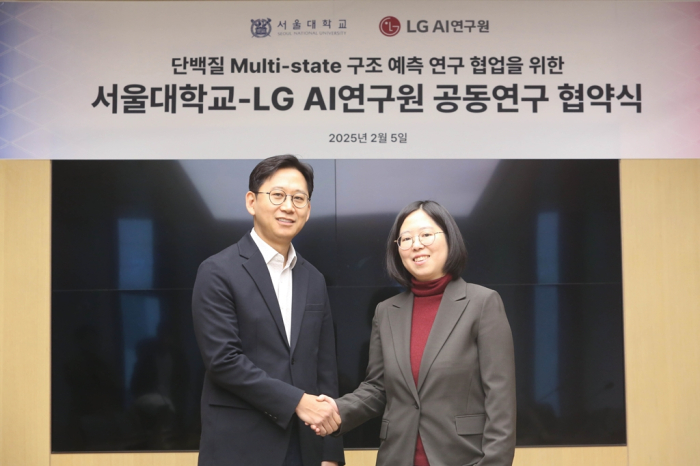
“Through the partnership with LG, we aim to advance protein structure prediction to a new level of validation and experimentation,” she said.
Soonyoung Lee, chief of LG AI Research’s Bio Intelligence Lab, said: “The key to unlocking secrets of intractable diseases like Alzheimer’s lies in understanding protein structures. Predicting complex multistate protein structures is extremely challenging. Still, we hope to decode disease mechanisms by developing AI to predict multistate protein structures and make groundbreaking progress in new drug development.”
Proteins are fundamental biomolecules involved in all human activities, and predicting their structures is essential for creating a digital cell map that can be used throughout the new drug discovery and therapeutic development process.
While global big tech firms are advancing AI-based protein structure prediction, their tech now can predict and design single protein structures. Modeling multistate protein structures, which change depending on environmental and chemical conditions within the human body, remains a challenge.
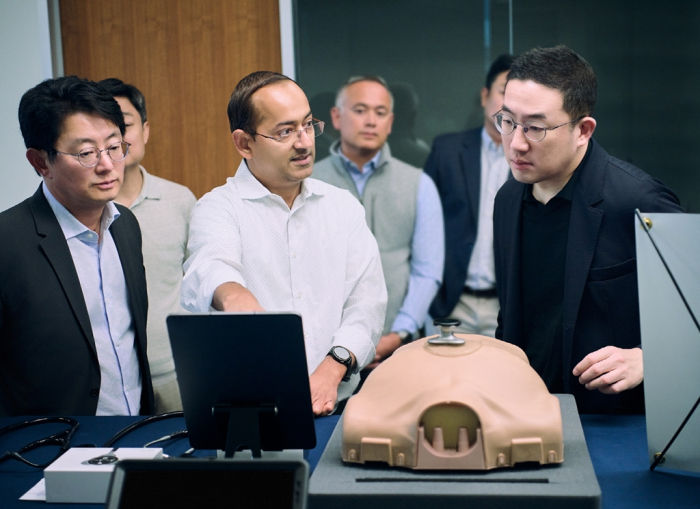
KOO KWANG-MO’S INITIATIVE
LG said it expects the collaboration with SNU will accelerate its ongoing research with the Jackson Laboratory (JAX), an independent, non-profit US biomedical research organization, to identify factors linked to Alzheimer’s and develop treatments.
LG has teamed up with JAX since early 2024 on AI models for diagnosing and treating Alzheimer’s and cancer.
The LG-SNU partnership reflects LG Group’s focus on AI and biotechnology to drive future growth.
In his New Year’s address, Koo Kwang-mo, LG Group chairman and CEO of LG Corp., stressed the company’s commitment to biotech growth.
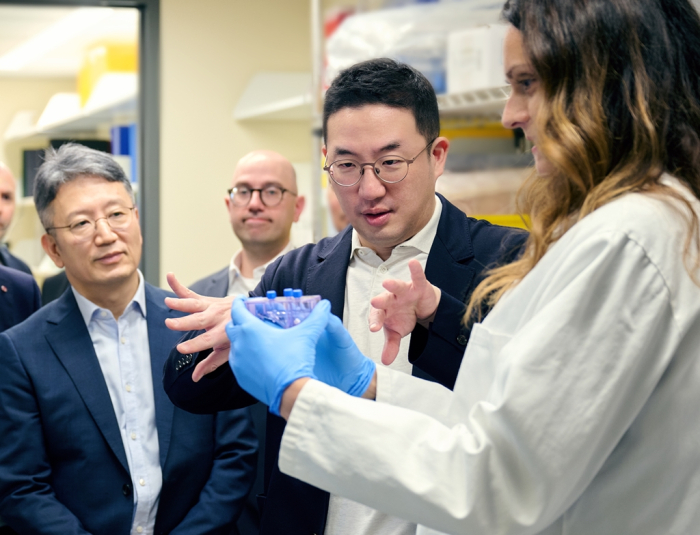
“By developing breakthrough drugs that treat incurable diseases, we aim to create a future where people can spend more time with loved ones,” he said.
The partnership marks a significant milestone in LG’s strategy to integrate AI and biotechnology within its future growth framework, known as ABC, or AI, bio and cleantech.
BAEK: RENOWNED AI MODELING EXPERT ON PROTEIN STRUCTURES
Prof. Baek is a globally renowned researcher in protein structure predictions.
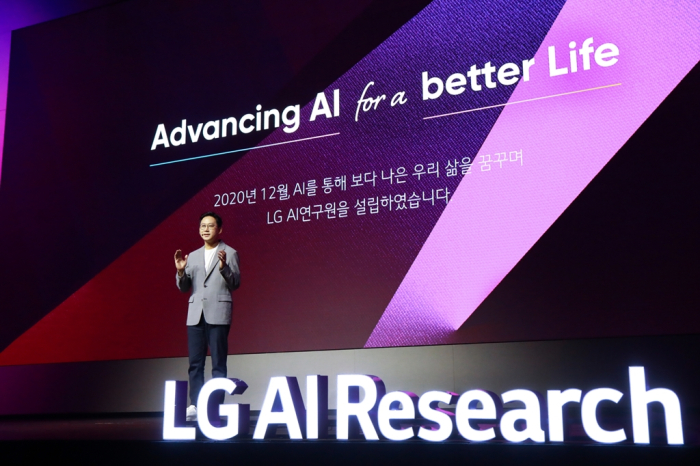
She co-developed RoseTTAFold, an AI-powered model predicting protein structure, alongside David Baker of the University of Washington, who won the 2024 Nobel Prize in chemistry for his work on computational protein design.
The lead researcher at SNU’s computational structural & systems biology lab, Baek worked as a postdoctoral researcher on Prof. Baker’s team at the University of Washington. She was the lead author of the RoseTTAFold research paper.
The 2024 Nobel Prize in chemistry was jointly awarded to Prof. Baker; Demis Hassabis, CEO of Google DeepMind; and John M. Jumper, principal research scientist at DeepMind.
By In-Soo Nam
isnam@hankyung.com
Jennifer Nicholson-Breen edited this article.


